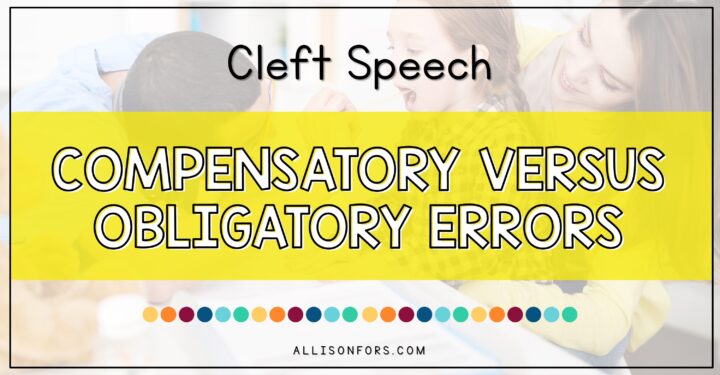
A Better Way to Teach Past Tense Verbs

English grammar rules are hard! Past tense verbs are definitely not my favorite speech therapy goal to work on. There is not much logic and reasoning in past tense verb forms, making them difficult to both teach and learn.
I have found the best way is to teach by verb pattern, as opposed to teaching them randomly. In other words, separating them into groups where the ending of the past tense form is the same. This method makes past tense verbs much more manageable and enjoyable. Teaching in this organized manner allows students to better remember and feel confident learning a group of verbs before moving onto the next verb pattern. I also keep in mind the verbs that are most commonly used in the English language and focus on these verbs. Learning past tense verbs is lots and lots of repetition and memorization, but teaching by pattern makes the memorization easier!
REGULAR PAST TENSE VERBS
There are 3 regular past tense verb patterns. Have the student master a verb group before moving onto the next. The graphic below explains when the past tense verb ends in /d/, /t/, or /ɪd, əd/.
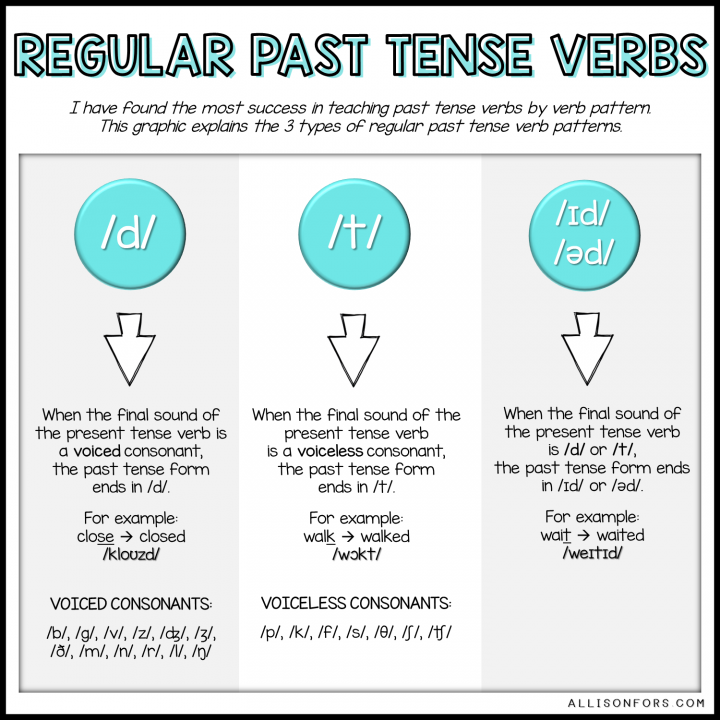
Download this handout for free!
Regular Past Tense Verb Examples:
/d/: closed, opened, moved, stayed, traveled, arrived, sneezed, pulled, turned, warned, cried, glued, carried, hugged, robbed, borrowed, entered, remembered, listened
/t/: walked, worked, dropped, finished, stopped, laughed, coughed, watched, kicked, asked, licked, looked, talked, worked, fixed, danced, passed
/ɪd/ or /əd/: waited, pretended, guarded, tested, acted, edited, ended, started, invited, expected, tasted, decided, needed, wanted, floated, painted, landed, decided
IRREGULAR PAST TENSE VERBS
Irregular past tense verbs are much more difficult and don’t have a clear explanation for their verb patterns. Below are the most common irregular verb forms. I teach them roughly in the order presented.
unchanged: cut, put, quit, burst, hit, shut, bet, hurt, let, cost, burst
-ought/-aught: taught, brought, caught, bought, fought, thought
-ang/-ung: rang, sang, hang, swung
-ew: blew, grew, knew, flew, drew, threw
-t: slept, felt, left, spent, met, spent, kept, swept
long /o/: spoke, drove, woke, broke, awoke, wrote, rode, froze
In addition to teaching in verb patterns, focus on common verbs.
Some of the most common irregular verbs are:
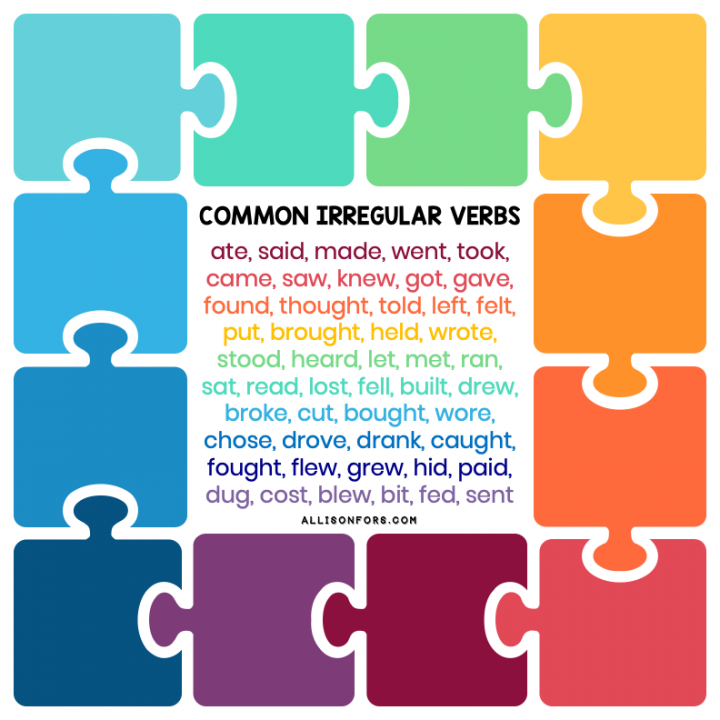
Download this handout for free!
- said
- made
- went
- took
- came
- saw
- knew
- got
- gave
- stood
- heard
- let
- found
- thought
- told
- left
- felt
- put
- brought
- held
- wrote
- met
- ran
- sat
- read
- lost
- fell
- built
- drew
- broke
- cut
- bought
- wore
- chose
- ate
If you’re looking to incorporate this, I have created resources that teach past tense verbs by verb pattern! All of these resources are broken down by the verb patterns listed above in leveled activities – from isolation drill to generalization activities.
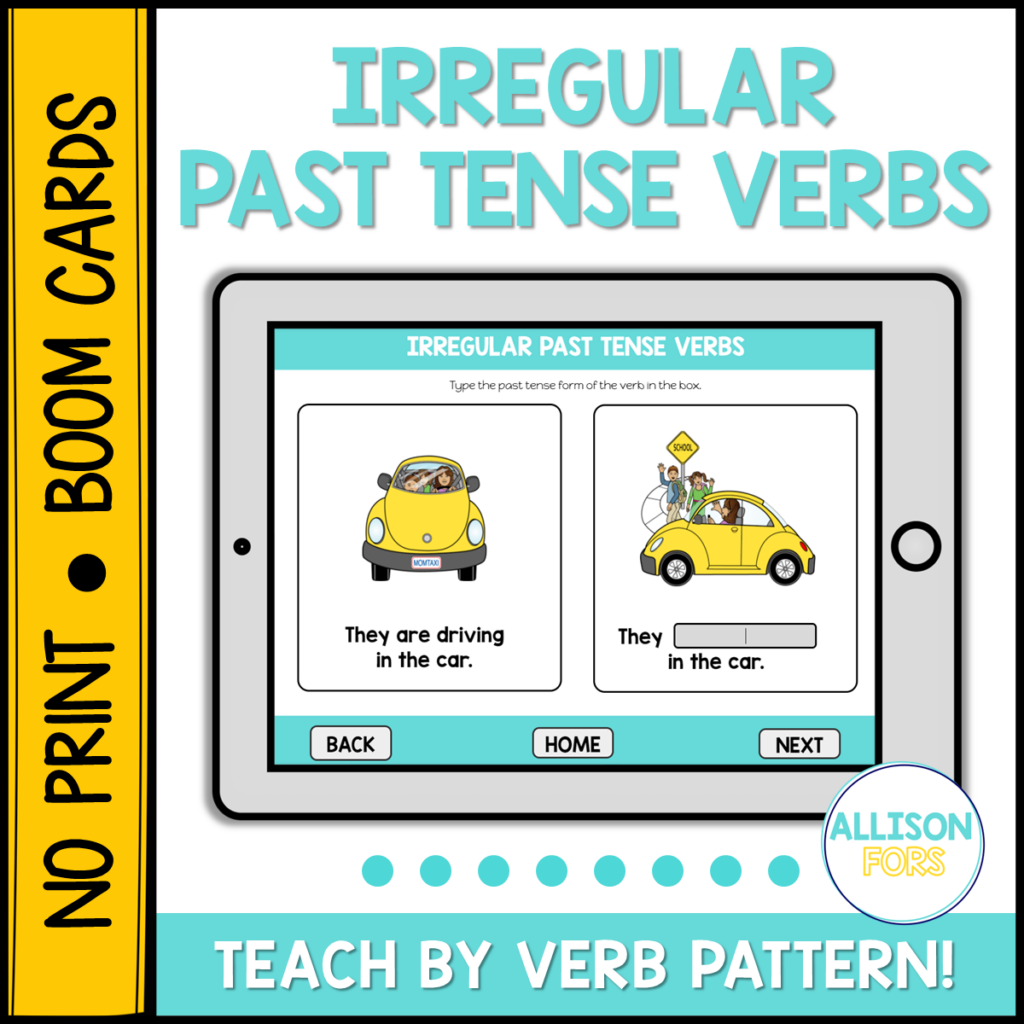
You might also be interested in this free download: Past Tense Verbs Sentences

Thanks for reading!

If you enjoyed this post, please share it!
Follow my blog with Bloglovin




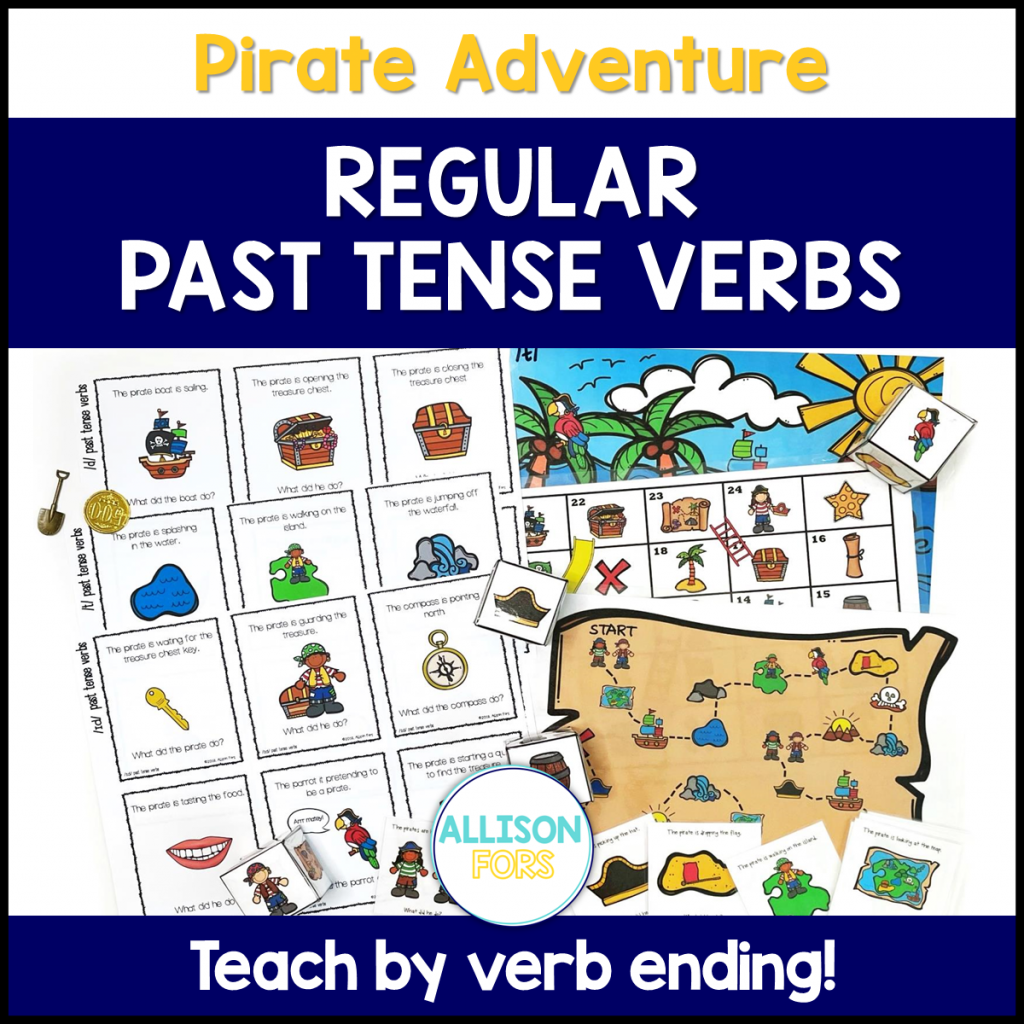
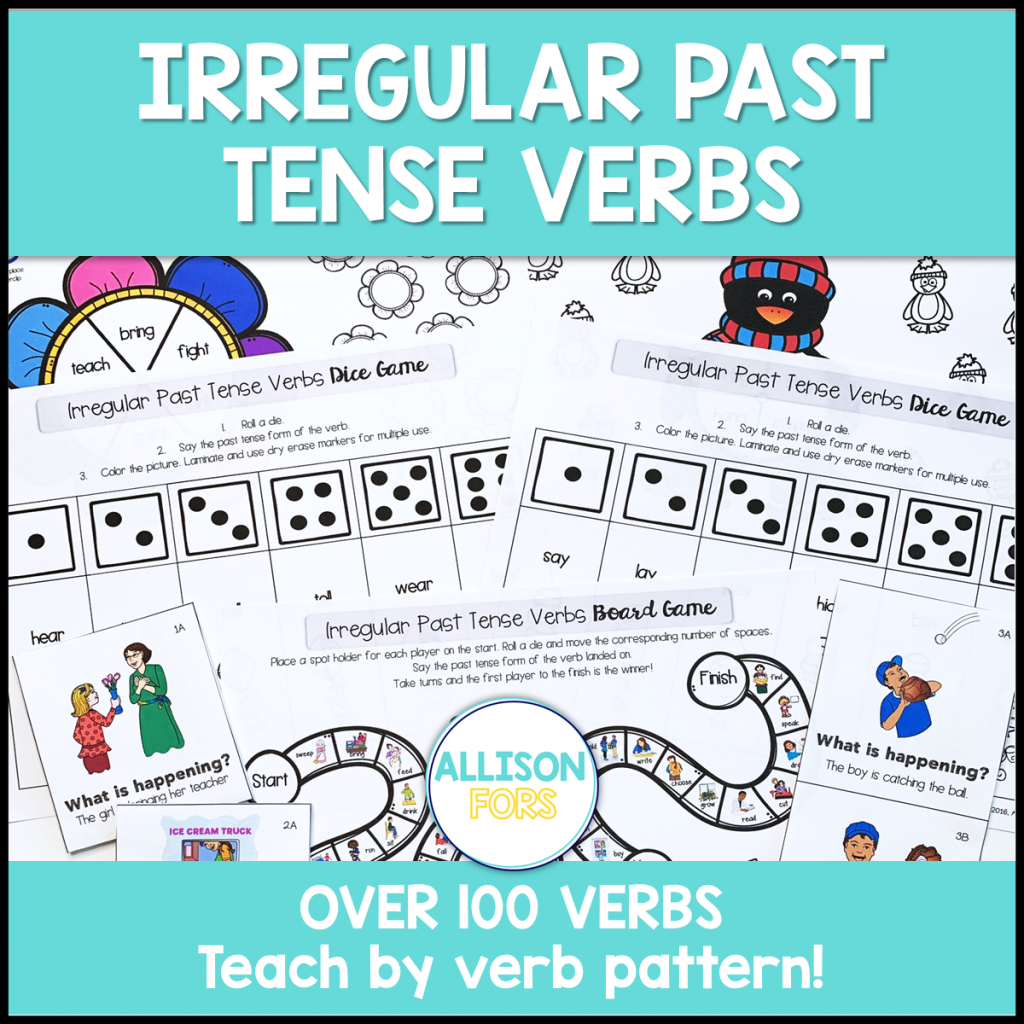
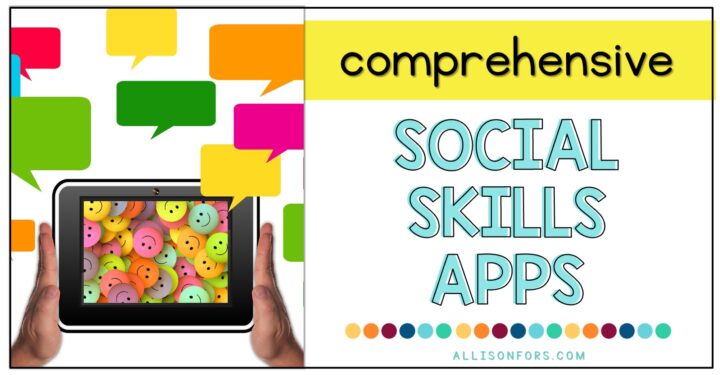
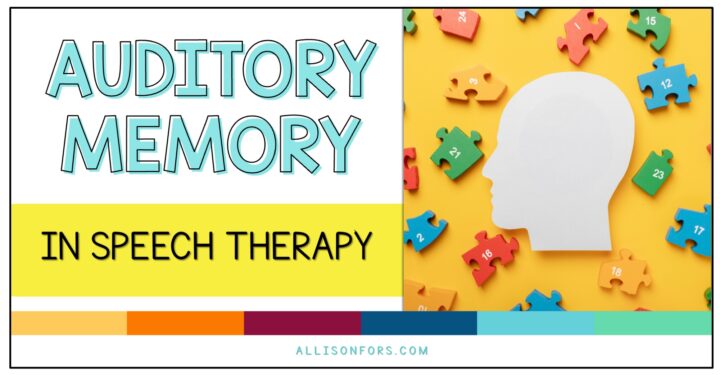
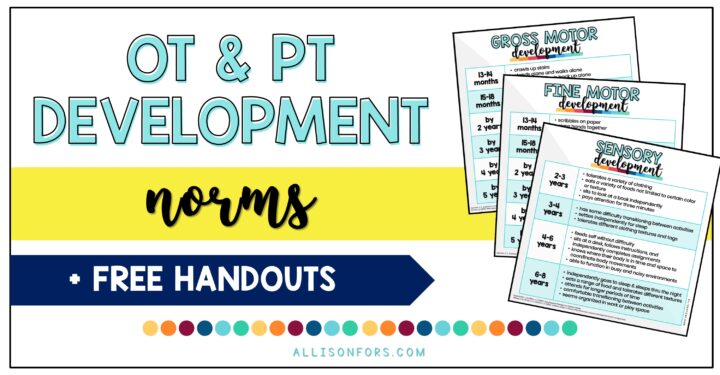

4 Responses
Excellent information, thanks for sharing !!! I will apply it in my classroom.
I have been looking for tools to utilize since l became a Remote Teacher and a Zoom mom for my amazing 4th grader. Teaching children with Autism is a blessing and a challenge in itself. Thank you for sharing these wonderful tools.
Thank you for this information! Very helpful. I am wondering in what grade you usually target this skill in therapy?
Children begin using regular and irregular past tense verbs correctly around 43-46 months of age. If kindergarteners or older children aren’t using past tense verbs correctly, we work on them!